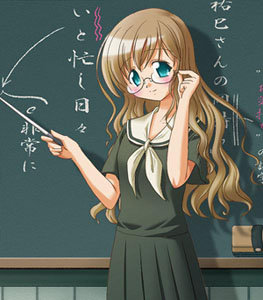I recently made a few posts about Japanese grammar, specifically the little “particles” that mark parts of a sentence. One of the more challenging things for students to get down are wa and ga, two particles which aim to point out the subject and topic of a sentence…which likely won’t make much sense to you, we don’t think of English sentences as having separate subjects and topics. I remember my teacher doing her best to explain the logical reasoning between the two, and how you could go about choosing which one you needed to use in a sentence. Trying to think about wa and ga analytically made my head hurt, and I never really learned that part of Japanese grammar like my Japanese professor wanted, instead being content to try using one or the other in my sentences and get feedback about whether I’d picked the wrong one. Which, it turns out, is a great way to learn, and is pretty much the way children acquire language, by trial and error. The point of learning any part of a language is to internalize it to the point where you don’t think about it but can use it functionally, and I was lucky to hit on this better way of acquiring Japanese, essentially making mistakes with it until I got it right.
Why Do We Love Gundam? Mobile Suit Gundam Hathaway: The Sorcery of Nymph Circe Review
This week I went to see the second film in the Mobile Suit Gundam Hathaway series, titled The Sorcery of...
















